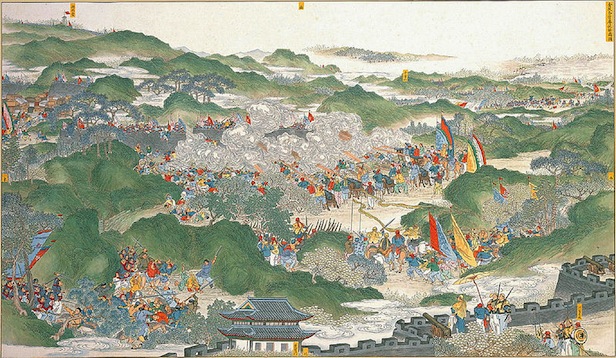Conservative estimates of the dead in the 14-year Taiping Rebellion in southern China start at between 20 and 30 million. In contrast, around 17 million soldiers and civilians were killed fifty years later during the First World War. The devastating death toll between 1850 to 1864 certainly makes the uprising one of the bloodiest events in history, with more than 100,000 people killed in three days during the Third Battle of Nanking in 1864. However, much of the mortality rate has been attributed to disease and famine rather than military conflict.
Some armies lost 50 per cent of their troops to disease, and most lost around 20 to 25 per cent. The exact cause is unknown, but is reasoned to have been cholera spread by contaminated water sources and poor hygiene. Famine was also caused both by the number of agricultural peasants conscripted into fight for the Taiping army rather than grow crops. When they were later encircled by Qing forces the Taiping were unable to feed their massive armies and many starved.
Want to find out the answers to more historical questions? Subscribe to All About History, the essential companion for all History lovers, by clicking here.

